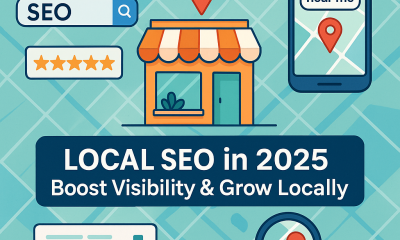Digital Marketing
PPC vs. Guest Post: Understanding the Strengths and Weaknesses of Both Strategies

Online marketing can sometimes feel like a puzzle. You’ve got different pieces like PPC, guest posting, and more. But how do they fit together? Think of PPC as paying for each visitor who clicks on your ad. On the other hand, guest posting is like writing a story for someone else’s website. Both methods can help bring more visitors to your site. This guide will make things clearer by explaining how each piece works. By the end, you’ll have a better idea of what might work best for you.
What is PPC?
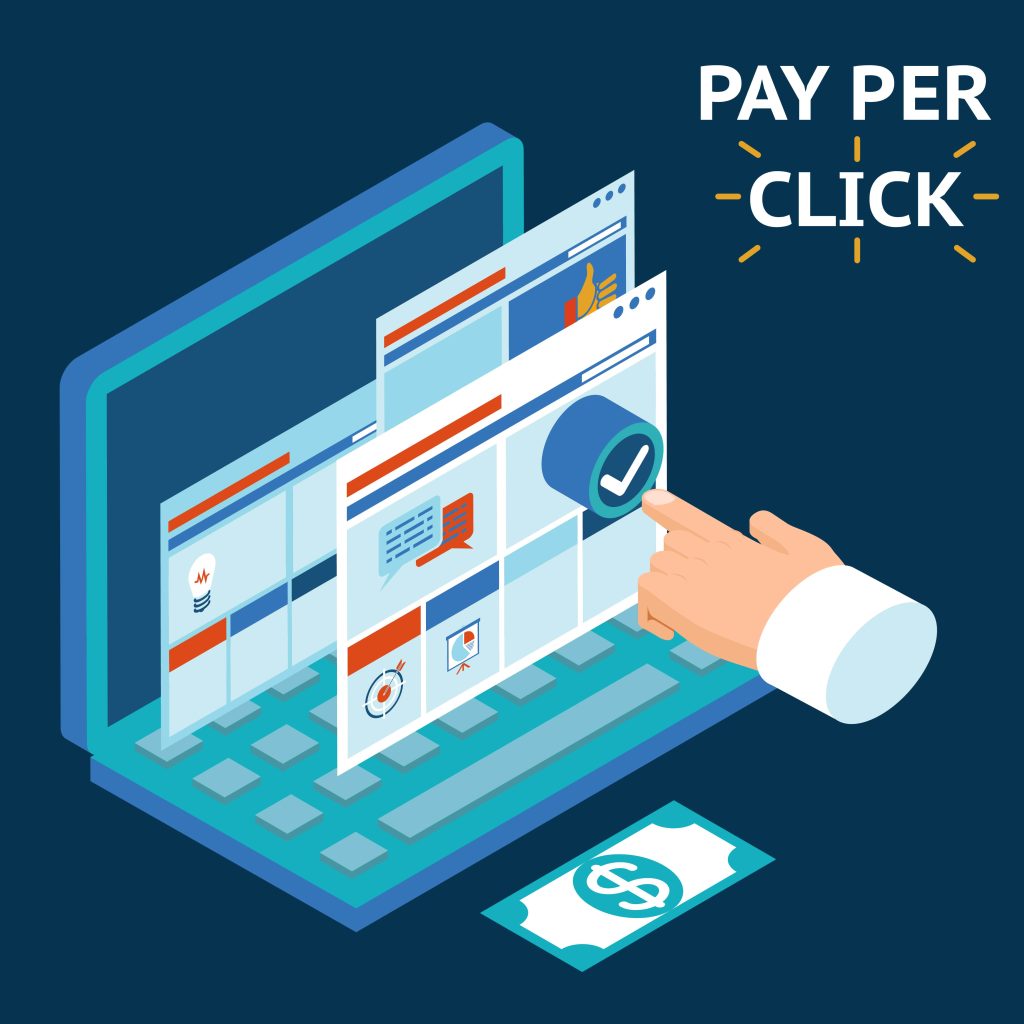
Pay-per-click (PPC) refers to a digital marketing model where advertisers pay a fee each time their advertisement is clicked by a user. Rather than earning visits organically, advertisers use PPC to buy visits to their sites. The model is grounded on the principle of bidding for ad placement. For instance, if we consider search engines like Google, advertisers bid on keyword phrases relevant to their target audience.
When users enter a search query containing those keywords, the PPC ad might be displayed on the results page. If the user clicks on the ad, they are directed to the advertiser’s website, and the advertiser is charged a fee. This fee is determined by various factors, including the competitiveness of the keyword and the quality of the ad campaign.
The effectiveness of PPC is often measured by its Return on Investment (ROI). This is calculated by comparing the amount spent on the advertising campaign to the amount of revenue generated from those ads. A successful PPC campaign will not only generate clicks but will also ensure those clicks lead to meaningful actions, such as sales or sign-ups.
Advantages of PPC
1. Immediate Results
Unlike organic SEO methods which can take a while to bear fruit, PPC campaigns offer almost instantaneous visibility on search engine result pages. As soon as your campaign is live and properly set up, your ads can appear to potential customers. For businesses that require quick outcomes, say for a limited-time offer, PPC provides an invaluable tool.
2. Highly Targeted Traffic
One of PPC’s strongest advantages is its precision in audience targeting. Beyond just keywords, campaigns can be tailored for specific demographics, devices, times of day, and even types of behavior. For instance, a local bakery can ensure their ads are only seen by people within a 10-mile radius searching for cakes during business hours.
3. Budget Flexibility
Budgeting with PPC allows for a high degree of flexibility. If an ad performs exceptionally well, businesses can increase their budget to capitalize on that success. Conversely, underperforming ads can be adjusted or paused to save on costs. This dynamic budgeting approach ensures funds are always used optimally.
4. Measurable ROI
PPC platforms, like Google Ads, offer comprehensive analytics, allowing businesses to see exact data on how many people viewed their ad, clicked it, and took subsequent action on their site. This data-driven approach ensures that businesses know the precise return on every dollar spent.
5. Branding Benefits
Even when users don’t click, they still see your ad. This consistent visibility at the top of search results can boost brand recall and awareness. Over time, even if they don’t engage immediately, users become more familiar and likely to think of your brand when making relevant decisions.
6. Control Over Ad Campaigns
With PPC, advertisers aren’t at the mercy of a platform’s algorithm. They decide the ad’s content, its design, its placement, and most importantly, where it directs the user. This control ensures a consistent and tailored experience for potential customers, maximizing the chances of conversion.
7. No Dependency on SEO Changes
SEO landscapes can shift dramatically with any major search algorithm update. Websites might suddenly lose visibility due to these changes. PPC, however, remains unaffected, ensuring a stable and predictable source of traffic.
8. Protection from SEO Downfalls
If, for some reason, a website’s organic ranking takes a hit – perhaps due to SEO errors or search engine penalties – PPC campaigns can provide a reliable backup, ensuring the business retains its online visibility and continues to attract potential customers.
9. Serves Multiple Business Goals
From increasing newsletter sign-ups to selling products, PPC campaigns can be tailored to meet diverse business objectives. This versatility ensures that whether you’re an e-commerce platform, a blog, or a local service, PPC can be molded to serve your unique needs.
10. Easy Entry and Scalability
Starting a PPC campaign doesn’t require months of preparation. Even a new business can swiftly set up a campaign, test the waters, and then adjust. As a company grows or achieves better results, PPC campaigns can be seamlessly scaled up to reach a broader audience or target new markets.
Challenges of PPC
1. Cost
The bid amount for popular keywords can skyrocket, especially in competitive industries. Without a strategically crafted campaign, there’s a risk of incurring high costs with minimal returns.
2. Temporary Nature
The sustainability of PPC is directly tied to your budget. Once your campaign funding dries up, the influx of traffic ceases, making it imperative to maintain consistent funding.
3. Complex Management
Keeping a PPC campaign running smoothly requires regular oversight. Advertisers need to continuously monitor and adjust bids, ad copies, and landing pages for optimal performance.
4. Ad Blindness
Many internet users have grown accustomed to skipping over advertisements. Over time, this “ad blindness” can potentially reduce the effectiveness of your PPC ads.
5. Risk of Click Fraud
Some unscrupulous competitors might repeatedly click on your ads to exhaust your budget, a practice known as click fraud. This can rapidly deplete your funds without yielding genuine leads.
6. Platform Dependency
Relying heavily on a single platform, like Google Ads, means you’re at the mercy of their policies and algorithm changes. A sudden change could affect your campaign’s visibility or cost efficiency.
7. Steep Learning Curve
For newcomers, PPC can be intimidating. From understanding quality scores to mastering ad placements, there’s a lot to grasp, and mistakes can be costly.
What is a Guest Post?
A guest post refers to a piece of content authored by an individual who isn’t a regular contributor to a specific website or platform. Often, experts or influencers in a particular field write guest posts for sites other than their own to reach a broader audience, share expertise, and build relationships within their industry. While the host website benefits from diverse content and fresh perspectives, the guest author gains exposure and often a backlink to their own site, fostering mutual growth and collaboration.
Advantages of Guest Posting
1. Increased Visibility
Venturing into the realm of guest posting means breaking the confines of your regular audience. By publishing on renowned platforms, your content, ideas, and voice reach corners of the internet that may have been previously untouched by your brand. This expanded reach not only enhances your online visibility but also paves the way for newer interactions and connections.
2. Quality Backlinks
Backlinks are a linchpin of SEO. When you secure a guest post on a well-regarded website, the opportunity to link back to your site isn’t merely a nod to your platform; it’s a strong SEO signal. Such high-quality backlinks tell search engines that your site is credible and valuable, potentially boosting your ranking in search results.
3. Establishes Authority
By consistently contributing valuable insights on esteemed platforms, you are crafting an image of expertise. Readers begin to associate your name with trusted information, cementing your position as an industry leader. Over time, this trustworthiness translates into a stronger brand identity and reputation.
4. Builds Relationships
Beyond mere content, guest posting is about building bridges. It’s a symbiotic relationship where both the host platform and the guest contributor benefit. This mutual growth often leads to long-term collaborations, knowledge exchanges, and a network of industry allies.
5. Enhanced Writing Skills
Every platform has its unique style and audience. Adapting your writing to fit these variances pushes you to grow and evolve as a writer. Plus, feedback from varied editors sharpens your craft, making your future pieces even more compelling.
6. Diversified Audience Engagement
Each platform attracts its unique set of readers. By guest posting across different sites, you gain insights into the preferences, feedback, and behavior of multiple audience types, refining your content strategy in the process.
7. Traffic Boost
A well-crafted guest post is more than just information; it’s an invitation. When readers find value in your content, they often want more, leading them directly to your website. This organic flow of traffic is both high-quality and engagement-driven.
8. Feedback and Insights
Stepping outside your regular platform exposes you to fresh perspectives. This new audience, with their feedback and comments, offers a goldmine of insights. From constructive criticism to new content ideas, the learning never stops.
9. Portfolio Expansion
For content creators, variety is the spice of a portfolio. Guest posts, especially on diverse platforms, showcase your adaptability and breadth of knowledge. This diversified portfolio often becomes a persuasive tool when seeking new opportunities or collaborations.
10. Monetary Opportunities
Beyond the intangible benefits, guest posting can be financially rewarding. Many platforms compensate guest contributors. Furthermore, a standout guest post can open doors to collaborations, sponsorships, and other income-generating ventures.
Challenges of Guest Posts
1. Time-Consuming
Venturing into the domain of guest posting isn’t a walk in the park. It begins with extensive research to pinpoint suitable platforms, which align with your niche and content goals. Following this, crafting a compelling pitch, getting it approved, writing the actual post, and then undergoing a potentially stringent editorial review can consume a significant chunk of time. For many, this process can be daunting, especially if the outcome isn’t as expected.
2. Quality Requirements
The digital landscape is brimming with content, raising the bar for quality higher than ever. To stand out and make your guest post count, delivering top-tier content is paramount. This not only entails a well-researched and articulate article but also one that aligns with the host site’s ethos. Falling short in the quality department could mean rejection or, worse, a tarnished reputation.
3. No Guarantees
The uncertain nature of guest posting can be its most challenging facet. Investing hours into research, writing, and editing doesn’t necessarily translate into your post getting the green light. Even if your post does see the light of day, there’s no surefire guarantee it will captivate the target audience or drive significant traffic back to your site.
4. Brand Consistency
While adapting to the style of the host site, there’s a risk of diluting your own brand voice. Striking a balance between maintaining brand consistency and fitting into the host’s content framework is a tightrope walk, demanding careful consideration.
5. Intellectual Property Concerns
Once your content goes live on another platform, you might have limited control over its future use. There’s potential for your content to be repurposed, or in worst-case scenarios, plagiarized without proper attribution, leading to intellectual property challenges.
6. Dependence on Platform Metrics
Evaluating the success of a guest post often hinges on analytics provided by the host site. Limited or skewed access to these metrics can make it challenging to measure the actual impact of your content, from reach to engagement.
Which is Right for You: Pay-Per-Click or Guest Post?
1. Objective Clarity
The initial step in any marketing strategy is understanding your end goal. Do you want to burst onto the scene with immediate online visibility, potentially capturing quick sales or sign-ups? Or is your vision geared towards nurturing a brand presence that, over time, becomes synonymous with expertise and reliability in your domain? Distinguishing between these aspirations will guide your decision-making, ensuring you channel efforts and resources effectively.
2. Immediate Traffic Boost
Imagine igniting a rocket; that’s the kind of rapid response PPC can offer. Particularly effective for ephemeral campaigns, product launches, or time-sensitive promotions, PPC can propel your content or product to the forefront. By strategically allocating your budget and selecting pertinent keywords, your ad can command prime real estate on search results, inviting a flurry of clicks and engagements.
3. Targeted Promotion
One of PPC’s crown jewels is its precision targeting. Picture a scenario where you’re not just broadcasting to the world, but handpicking your audience. Want to target middle-aged fitness enthusiasts in a specific city searching for gym equipment? Or perhaps millennials who’ve recently browsed travel sites? PPC campaigns can be laser-focused, ensuring that your ads resonate with a specific, tailored audience, amplifying chances of conversion.
4. Budget Control
The fear of spiraling marketing costs is alleviated with PPC’s budgetary reins. You’re in the driver’s seat, determining daily or campaign-wise expenditure ceilings. This ensures your marketing remains within financial boundaries, making it adaptable for both fledgling startups and established giants. And with tools like Google Ads, you can even set limits on how much you’re willing to pay per click, giving you a firm grip on costs.
5. Measurable ROI
PPC stands out by offering real-time, actionable metrics. From the number of eyes that see your ad (impressions) to those who engage (clicks) and eventually convert (sales/sign-ups), every step is quantifiable. This granular insight is invaluable. It means you’re not shooting in the dark; you can continuously refine your strategy, tweak ad components, or reallocate your budget, optimizing for the best possible returns.
6. Short-Term Campaigns
When you’re about to unveil a groundbreaking product, entice customers with a fleeting discount, or drum up buzz for an imminent event, you require rapid, widespread visibility. This is where PPC shines. By bidding on high-impact keywords and optimizing your ad placements, PPC campaigns thrust you into the spotlight, ensuring your message resonates loud and clear exactly when it’s most pivotal.
7. Building Authority
Think of guest posting as a stage where you’re the main speaker. If you consistently deliver insightful, well-researched content on esteemed platforms, audiences start recognizing and valuing your voice. Over time, this doesn’t just reflect on you as an individual but elevates your brand’s standing. In a digital realm teeming with content, being perceived as a reliable thought leader can set you apart, making guest posting a cornerstone for authority-building.
8. Long-Term SEO Benefits
Beyond the immediate readership of a guest post lies a treasure trove of SEO benefits. Quality content can earn you a nod from search engines in the form of a backlink—a vote of confidence. As you accumulate these backlinks from trusted platforms, they act as endorsements, signaling to search engines that your site is a reservoir of value. This cumulatively uplifts your domain’s standing, paving the way for organic traffic growth and improved search visibility.
9. Credibility Through Association
The adage, “You’re known by the company you keep,” rings especially true in digital publishing. When your content graces the pages of a revered platform, there’s a transference of trust. Readers, familiar with the platform’s stringent content standards, inherently attribute that trustworthiness to you. This association is more than just fleeting recognition—it’s an amplification of your brand’s integrity and reliability.
10. Networking Opportunities
The journey of guest posting is akin to threading a web of professional connections. Each post is an outreach, a handshake extended to the host platform’s audience, editors, and even fellow contributors. As you consistently engage in this endeavor, you’re not just depositing content but cultivating relationships. These could blossom into collaborative ventures, mentorship, client leads, or a myriad of unforeseen opportunities that enrich your professional trajectory.
11. Sustainable Growth
Imagine planting a seed that grows into a tree, continuously bearing fruit season after season. This is the nature of guest posting. Unlike the ephemeral rush of PPC, where traffic correlates directly with ad spend and can wane once the campaign halts, guest posting offers enduring rewards. A well-constructed piece can magnetize readers, spur shares on social media, and remain relevant, acting as a perennial source of engagement and organic growth.
12. Diverse Audience Reach
Venturing into guest posting is akin to setting sail on diverse waters, each platform harboring its unique audience ecosystem. Every article you craft is a beacon, drawing readers from varied backgrounds, interests, and geographies. As you consistently guest post across multiple platforms, you’re not just disseminating information; you’re weaving a rich tapestry of engagement, broadening your brand’s reach and resonance across a mosaic of demographics.
13. Cost Considerations
Financial prudence is a cornerstone of effective marketing, and both PPC and guest posting come with their fiscal nuances. With PPC, there’s a tangible cost attached to every engagement, be it a click or impression.
Guest posting, on the other hand, often demands a different kind of currency: time, effort, and occasionally, monetary investment for sponsored placements or outreach endeavors. Yet, the dividends it pays, in terms of sustained traffic, brand credibility, and the organic amplification of your brand’s voice, often render it a worthy investment, paying rich long-term dividends.
Conclusion
both PPC and guest posts have their strengths and weaknesses. Your decision should align with your business objectives, available resources, and timeline. By understanding the nuances of each approach, you can make informed decisions and optimize your digital marketing efforts.

Business
The Importance of Local SEO 2025: Boosting Visibility & Driving Growth
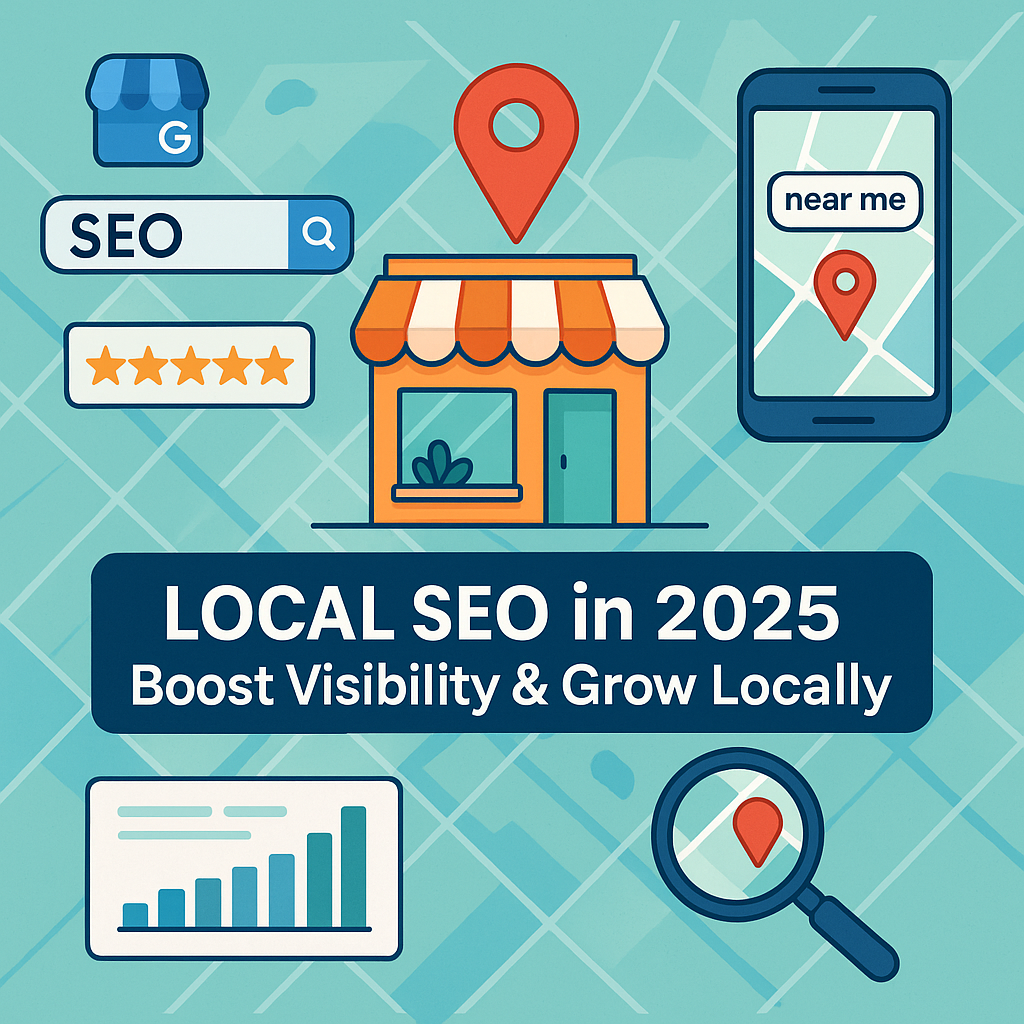
In present hyper-connected world, simply having a website isn’t enough—local visibility is everything. Whether you’re running a coffee shop in Bristol or offering plumbing services in Chicago, your ability to show up in local search results can make or break your business. That’s where Local SEO steps in.
As of 2025, over 78% of location-based searches on mobile lead to an offline purchase, proving that consumers are searching locally with the intent to act quickly. For small businesses, local SEO is no longer a luxury—it’s a necessity for growth, trust, and survival in a competitive digital landscape.
What Is Local SEO?
Local SEO (Search Engine Optimization) is a digital marketing strategy focused on improving a business’s visibility in geographically-related search results, particularly on Google. Unlike traditional SEO, which targets a global or national audience, local SEO helps your business rank when users search for services “near me” or include a specific city, town, or neighborhood in their query.
In 2025, local SEO revolves around optimizing your Google Business Profile, ensuring NAP (Name, Address, Phone Number) consistency across directories, earning positive reviews, and using geo-targeted keywords. With over 46% of all Google searches now having local intent, local SEO is essential for attracting nearby customers, increasing foot traffic, and building trust in your local community.
Whether you run a bakery in Manchester or a law firm in Brooklyn, local SEO ensures you’re found when it matters most—right in your customer’s neighborhood.
Why Local SEO Is Important?
In 2025, local SEO is more vital than ever, as consumer behavior shifts towards hyper-local, instant search experiences. Here’s why it matters—and what the latest data reveals:
1. Rise of “Near Me” Searches
Searches containing “near me” have grown by more than 150% in the past two years, according to Google Trends. People now expect instant, localized results. Local SEO ensures your business ranks for these intent-driven searches, allowing you to capture nearby users looking for products or services they need immediately, increasing leads, calls, and walk-in visits dramatically.
2. Mobile Search Dominance
As of 2025, over 65% of local searches come from smartphones. Consumers use mobile to find local businesses, check reviews, get directions, and contact services on the go. Local SEO helps ensure your business is fully optimized for mobile results, improving your Google Maps placement and capturing high-intent users who are ready to act quickly after finding your business.
3. High Purchase Intent of Local Searches
Local SEO targets users with strong purchase intent. Research from BrightLocal reveals that 78% of local mobile searches result in a purchase or store visit within 24 hours. By showing up in relevant local searches, your business connects directly with ready-to-buy customers—making local SEO one of the highest ROI strategies for small and location-based businesses in 2025.
4. Voice Search Growth in Local Discovery
Voice assistants like Siri, Alexa, and Google Assistant are transforming local search. As of 2025, 58% of users rely on voice search to find local businesses. Queries like “best pizza place near me” or “24-hour vet nearby” are common. Local SEO ensures your business is voice-friendly, increasing discoverability for location-based, conversational search queries used daily on smart devices.
5. Google Maps as a Primary Discovery Tool
Google Maps has become the default tool for finding local businesses. In 2025, over 84% of users turn to Maps for directions, hours, or reviews. Without local SEO—especially a well-optimized Google Business Profile—your business may not appear at all. Proper optimization ensures you’re visible in local packs and map results where purchasing decisions happen in real time.
6. Impact of Reviews on Local SEO Rankings
Customer reviews are a major ranking signal in Google’s local algorithm. According to Whitespark’s 2025 report, reviews influence 16% of local pack rankings. High ratings, review frequency, and owner responses increase credibility and boost visibility. A strong local SEO strategy includes review generation and response management, helping businesses build trust and gain better placement in search results.
7. Local SEO Builds Brand Trust and Authority
Local SEO helps establish your business as a trustworthy local authority. A BrightLocal study shows 87% of users read reviews before engaging with a business. Verified listings, accurate contact details, quality content, and consistent branding across directories all contribute to higher trust and user confidence—crucial for conversions and long-term customer relationships in your local market.
Benefits of Local SEO
1. Increased Visibility in Local Search Results
Local SEO boosts your presence on Google Maps and in the “Local Pack,” which appears above organic listings. In 2025, over 84% of users click on local results when searching for nearby services. By optimizing your Google Business Profile and local keywords, your business appears where customers are looking—right in your service area.
2. More Foot Traffic and Local Engagement
Optimizing for local SEO drives real-world results. Google data shows 76% of users who conduct a local search visit a business within 24 hours. Accurate location info, mobile-friendly sites, and map listings guide customers directly to your storefront, significantly increasing in-store visits and personal engagement with high-intent local shoppers and clients.
3. Higher Conversion Rates from Local Searchers
Local searchers have strong intent to buy. According to BrightLocal, 78% of location-based searches result in purchases. Local SEO positions your business in front of customers who are actively seeking what you offer. This leads to faster conversions, higher-quality leads, and better ROI compared to untargeted traffic from generic or broad keyword campaigns.
4. Improved Online Reputation and Trust
Reviews are essential in local SEO. A 2025 ReviewTrackers study shows that 87% of consumers won’t consider a business with low ratings. Local SEO includes review management and response strategies, which enhance trust, increase credibility, and influence decision-making—leading to more clicks, bookings, and sales from new and returning customers.
5. Competitive Advantage Over Local Rivals
Many small businesses still overlook local SEO, giving you a chance to stand out. By optimizing your listings, content, and citations, you can outrank nearby competitors in search results. This improved visibility helps attract more customers in your area, even if competitors offer similar products or services but lack strong digital presence.
6. Cost-Effective Marketing Strategy
Local SEO provides long-term, sustainable exposure without the ongoing costs of ads. Once optimized, your listings and rankings continue to drive organic traffic. In 2025, small businesses using local SEO report 60% lower cost per acquisition compared to paid ads. It’s one of the most efficient ways to grow locally without draining your budget.
7. Boosts Local Brand Awareness
Appearing in multiple local searches helps reinforce your brand name and presence within your community. Whether someone sees your business on Google, a directory, or in reviews, repeated exposure builds recognition. Local SEO ensures your brand shows up consistently in all local digital touchpoints, making your business top-of-mind for nearby consumers.
How Local SEO Works?
Local SEO works by optimizing your online presence so that search engines—especially Google—understand your business’s location, services, and relevance to local searchers. It helps your business appear in key places like Google’s Local Pack, Google Maps, and localized organic search results when people search for nearby solutions.
How Local SEO works?
1. Google Business Profile Optimization
Claiming and optimizing your Google Business Profile (GBP) is the foundation. You must ensure your address, phone number, business hours, categories, and photos are accurate and up to date. According to a 2025 Whitespark study, GBP signals are the #1 ranking factor for Google’s Local Pack results.
2. NAP Consistency Across Listings
Search engines scan business directories (like Yelp, Facebook, Bing Places) to verify your Name, Address, and Phone Number (NAP). Consistency builds trust. Inconsistencies can confuse Google and lower your rankings. Tools like Moz Local and BrightLocal help automate and audit citation consistency across the web.
3. Local Keyword Targeting
Local SEO involves targeting geo-specific keywords like “best Italian restaurant in Glasgow” or “emergency plumber near me.” You integrate these keywords into your website pages, blog posts, meta tags, and headings to signal to Google that you’re a relevant match for local intent searches.
4. Online Reviews and Ratings
Customer reviews, especially on Google, directly influence your rankings. Positive reviews improve click-through rates and trust. Responding to reviews is equally important—it signals engagement and reliability. In 2025, reviews account for over 16% of local search ranking factors (Whitespark).
5. Local Backlinks and Citations
Backlinks from local websites, news sites, or blogs strengthen your local authority. Additionally, local citations (mentions of your business name and details) across trusted directories reinforce your legitimacy and boost visibility in Google’s local search algorithm.
6. Mobile and Voice Search Optimization
With over 65% of local searches coming from mobile devices and 58% from voice assistants in 2025, your website must be mobile-friendly, fast-loading, and structured with clear answers to conversational queries (e.g., “Where’s the nearest vet clinic open now?”).
7. Location-Based Content
Creating content that speaks directly to your community—like neighborhood pages, local blogs, or city-specific landing pages—helps you rank higher in local results. This tells Google that your site is relevant not just to what users are searching, but where they’re searching from.
How to Do Local SEO?
1. Claim and Optimize Your Google Business Profile
Start by claiming your Google Business Profile (GBP) through Google’s official platform. Fill out every detail including your business name, address, phone number, category, working hours, and website URL. Upload high-quality images and videos, post regular updates, and respond to customer questions. In 2025, fully optimized profiles are 7x more likely to get clicks and 70% more likely to lead to in-store visits compared to incomplete listings.
2. Ensure NAP Consistency Across All Platforms
NAP stands for Name, Address, and Phone number—and consistency is critical across your website, local directories, and social platforms. Inconsistent contact information confuses both users and Google’s algorithm, lowering your local ranking potential. Use tools like Moz Local or BrightLocal to audit and fix discrepancies. Accurate citations help Google trust your business and boost your visibility in local search results.
3. Target Local Keywords Strategically
Local SEO relies heavily on geo-targeted keywords such as “best bakery in Bristol” or “24-hour locksmith near me.” Use SEO tools like Google Keyword Planner or Semrush to research high-intent local phrases. Integrate these keywords naturally into your website content, service pages, meta descriptions, and your Google Business Profile. This improves your chances of ranking for location-specific queries made by nearby customers.
4. Get Listed in Trusted Local Directories
Submitting your business to high-authority local directories like Yelp, Bing Places, Foursquare, Yellow Pages, and Facebook boosts your visibility. These listings act as digital citations and help build local authority. Make sure all listings match your NAP format exactly and include categories, services, and links to your website for better ranking in Google’s local pack and Maps results.
5. Collect and Manage Online Reviews
Online reviews are a powerful ranking and trust factor. Encourage satisfied customers to leave Google reviews, and actively respond to feedback, both positive and negative. In 2025, businesses with over 50 recent reviews enjoy significantly higher visibility. Reviews not only build credibility but also influence consumer decisions, so monitor and manage them through tools like ReviewTrackers or Google’s review dashboard.
6. Optimize Your Website for Local SEO
Your website should clearly reflect your business’s location and offerings. Create location-specific landing pages, use local schema markup, embed Google Maps, and include your full NAP on every page. Ensure your site is mobile-friendly and loads fast, as 65% of local searches come from mobile devices. Google prioritizes user experience, especially for local intent searches.
7. Build Local Backlinks and Earn Citations
Earning backlinks from local sources like news sites, blogs, schools, and community pages improves your local SEO authority. Participate in or sponsor local events to get mentioned in regional publications. Also, increase your citations—mentions of your business details without links—on trustworthy directories. These signals help Google verify your physical presence in the area and improve your ranking.
8. Create Hyperlocal and Relevant Content
Publishing local content builds relevance with your community and search engines. Write blog posts about area-specific challenges, local events, customer stories, or “how-to” guides related to your services in your city. This positions your business as an active, relevant local resource while helping your site rank for long-tail, location-specific queries that drive qualified traffic.
9. Use Dedicated Location Pages for Multiple Branches
If your business operates in more than one area, create unique landing pages for each location. Include localized content, reviews, maps, and service details. Avoid duplicate content—tailor each page to reflect the community it serves. Adding schema markup and localized keywords ensures each location ranks individually and accurately in the relevant city or neighborhood.
10. Track, Analyze, and Improve with Local SEO Tools
Use tools like Google Search Console and Google Analytics 4 to track your local traffic, user behavior, and conversions. Platforms like BrightLocal, Whitespark, or Semrush Local offer advanced tracking for rankings, citations, reviews, and competitor analysis. Regularly auditing and updating your local SEO efforts helps you adapt to algorithm changes and maintain long-term visibility.
Top Local SEO Tools & Resources
1. Google Business Profile Manager
Google Business Profile (GBP) Manager is the backbone of local SEO. According to Google, listings with complete profiles receive 7x more clicks and 70% more direction requests than incomplete ones. In 2025, GBP directly influences visibility in the Local Pack, which now accounts for 42% of all local clicks. Posting updates, replying to reviews, and using GBP insights help improve real-world footfall and search rankings.
2. BrightLocal
BrightLocal is used by over 80,000 agencies and local businesses to manage citations, monitor reviews, and track local rankings. Its Local Search Grid feature provides visual insight into how your business ranks in specific areas. A 2025 survey shows that businesses using BrightLocal see an average increase of 32% in local keyword visibility within 3 months of consistent optimization efforts.
3. Moz Local
Moz Local automates listing management across dozens of directories, helping businesses maintain accurate NAP data. In 2025, Moz’s citation sync reduces manual errors by over 90% and improves local search stability across platforms like Yelp, Apple Maps, and Bing. A Moz study shows that businesses with consistent NAP data experience 28% better ranking outcomes in Google’s Local Pack.
4. Semrush Local SEO Toolkit
Semrush’s Local SEO Toolkit is integrated into its broader SEO suite, used by 10 million marketers globally. In 2025, its AI-driven auditing and geo-targeted trackingwill provide up to 96% keyword accuracy for local ranking data. A recent case study showed that small businesses using Semrush’s local features improved local organic traffic by 40% within 60 days.
5. Whitespark
Whitespark’s Local Citation Finder helps businesses uncover directories and platforms that competitors are listed on, but they are not. In 2025, Whitespark clients reported a 24% improvement in local search rankings after citation cleanup and discovery campaigns. It also offers Google Review Link Generators, making it easier to get customer reviews—a key local ranking factor.
6. Yext
Yext manages your business data across more than 200 platforms, including Amazon Alexa, Apple Maps, Facebook, and Waze. Research from Yext shows that consistent data across listings improves search engine trust signals by over 35%, which directly affects Local Pack rankings. It’s ideal for multi-location businesses that require high-scale automation and brand control.
7. ReviewTrackers
In 2025, 93% of consumers say online reviews influence buying decisions (Source: ReviewTrackers). This tool allows businesses to monitor, collect, and respond to reviews from Google, Facebook, Yelp, and more—all from one dashboard. Sentiment analysis and competitor benchmarks help brands improve their reputation and boost click-through rates by up to 25% in local search results.
8. Local Falcon
Local Falcon maps your Google Business Profile ranking position across a grid of search points in a specific area. This reveals your real-world local SEO coverage radius, which is increasingly important in 2025’s proximity-based algorithm. Businesses using Local Falcon typically discover 15–30% of their service areas are underperforming, allowing them to optimize hyperlocal visibility more precisely.
Common Mistakes to Avoid in Local SEO
1. Inconsistent NAP (Name, Address, Phone Number) Details
One of the most damaging mistakes in local SEO is having inconsistent business information across directories and platforms. Google relies on consistent NAP data to validate your legitimacy. In 2025, businesses with mismatched citations saw a 22% drop in local rankings (Source: Whitespark). Always ensure your NAP is identical across your website, Google Business Profile, Yelp, and other directories.
2. Neglecting Google Business Profile Optimization
Simply claiming your Google Business Profile isn’t enough. Many businesses forget to update hours, add new photos, or respond to Q&A and reviews. This hurts engagement and visibility. A BrightLocal study shows that optimized profiles receive 5x more views and 3x more actions (calls, clicks, direction requests) compared to inactive or incomplete listings.
3. Ignoring Online Reviews and Reputation Management
Failing to manage reviews—or worse, not generating them—directly affects your local visibility. In 2025, Google confirmed that review quality, quantity, and recency are critical ranking signals. Businesses with fewer than 10 recent reviews rank significantly lower in competitive niches. Actively ask for feedback, reply to every review, and monitor your reputation.
4. Overlooking Mobile Optimization
With over 65% of local searches coming from mobile devices in 2025, having a slow or unresponsive website drives users—and rankings—away. Google prioritizes mobile-first indexing, meaning your mobile experience directly impacts your SEO performance. Ensure your site loads under 3 seconds, is responsive, and features click-to-call buttons and map integrations.
5. Using Generic, Non-Localized Content
Generic content that doesn’t target specific locations fails to rank in local results. Many businesses make the mistake of reusing the same content across city pages or not including local references at all. To rank well, create unique, geo-targeted landing pages with references to neighborhoods, landmarks, or local events relevant to your audience.
6. Keyword Stuffing and Spammy Optimization
Stuffing location names or service keywords excessively in your content or Google Business Profile can backfire. Google’s spam filters in 2025 are more advanced and may flag your listing, reducing visibility or even suspending your profile. Instead, use keywords naturally, prioritizing helpful content that addresses users’ local intent.
7. Not Using Local Structured Data (Schema Markup)
Schema markup helps Google better understand your business’s address, services, and reviews. Many businesses skip this technical step, missing out on rich results like review stars or operating hours in search. In 2025, websites with local business schema had 28% higher click-through rates, according to a study by Schema.org.
8. Failing to Monitor Performance and Analytics
Local SEO isn’t set-and-forget. Failing to track your performance using tools like Google Search Console, GA4, or BrightLocal means missing valuable insights. Regularly reviewing rankings, click-through rates, and user behavior helps identify weak spots and areas to improve. In 2025, top-performing local businesses review and update their SEO strategy at least quarterly.
Conclusion
In 2025, local SEO is no longer optional—it’s essential for small and location-based businesses aiming to grow in competitive markets. From improving visibility in Google Maps to driving foot traffic and building trust through reviews, local SEO delivers real, measurable results.
Digital Marketing
19 Digital Marketing Strategies To Grow Business in the UK

having effective marketing strategies is crucial for businesses to thrive and succeed. With the rapid advancements in technology, digital marketing has become an essential component of any successful business plan. This ultimate guide aims to provide you with a comprehensive overview of digital marketing strategies specifically tailored for the UK market. From search engine optimization (SEO) to social media marketing, we will explore the key strategies that can help you boost your online presence, increase brand awareness, and drive targeted traffic to your website.
The Importance of Digital Marketing
In today’s highly competitive business landscape, digital marketing plays a pivotal role in helping businesses stand out and reach their target audience effectively. With the majority of consumers now turning to the internet to research products and services, having a strong online presence is crucial. Digital marketing allows businesses to connect with their target audience, build brand awareness, drive website traffic, generate leads, and ultimately increase sales and revenue.
Digital Marketing Strategies To Boost Your Business in the UK

1. Search Engine Optimization (SEO)
SEO is a fundamental digital marketing strategy that focuses on optimizing a website to improve its visibility on search engine result pages (SERPs). It involves various techniques such as keyword research, on-page optimization, link building, and technical SEO to enhance a website’s organic ranking. By implementing effective SEO strategies, businesses can increase their chances of appearing on the first page of search engine results, driving organic traffic, and attracting potential customers.
2. Pay-Per-Click (PPC) Advertising
PPC advertising is a paid digital marketing strategy where businesses bid on keywords and pay a fee each time their ad is clicked. This method allows businesses to place their ads prominently on search engine results pages or other websites and only pay when a user clicks on their ad. It offers quick visibility and immediate results, making it an effective strategy for driving targeted traffic and generating leads.
3. Content Marketing
Content marketing revolves around creating and distributing valuable, relevant, and consistent content to attract and engage a clearly defined target audience. It includes various forms of content such as blog posts, articles, infographics, videos, and more. By providing valuable content that resonates with their audience, businesses can establish themselves as industry leaders, build trust, and drive organic traffic to their websites.
4. Social Media Marketing
Social media marketing involves leveraging social media platforms such as Facebook, Instagram, Twitter, and LinkedIn to promote products or services, engage with the target audience, and build brand awareness. With billions of active users on social media, businesses can tap into these platforms to reach a wider audience, create meaningful connections, and drive website traffic.
5. Email Marketing
Email marketing is a highly effective strategy for nurturing leads and converting them into customers. By sending targeted and personalized emails to subscribers, businesses can build relationships, promote products or services, and drive conversions. It is important to segment the email list, create compelling content, and optimize email campaigns to maximize the effectiveness of this strategy.
6. Influencer Marketing
Influencer marketing involves partnering with influential individuals or personalities in a specific industry or niche to promote products or services. By leveraging the credibility and reach of influencers, businesses can expand their brand reach, build trust, and increase their customer base. It is essential to identify relevant influencers who align with the brand values and target audience to ensure the success of influencer marketing campaigns.
7. Video Marketing
Video marketing has gained immense popularity in recent years, with platforms like YouTube becoming major hubs for content consumption. Businesses can create engaging and informative videos to showcase their products or services, share tutorials, or provide valuable insights. Videos have a higher engagement rate and can effectively convey messages, making them a powerful tool for digital marketing.
8. Mobile Marketing
With the increasing use of smartphones and mobile devices, mobile marketing has become a crucial aspect of digital marketing strategies. It involves optimizing websites for mobile devices, creating mobile apps, and implementing SMS or MMS marketing campaigns. By targeting mobile users, businesses can reach a wider audience and provide a seamless user experience.
9. Affiliate Marketing
Affiliate marketing is a performance-based strategy where businesses partner with affiliates who promote their products or services in exchange for a commission. It is a cost-effective way to expand the brand’s reach and drive sales. By leveraging the network of affiliates, businesses can tap into new markets and target specific audiences effectively.
10. Data Analytics
Data analytics is an integral part of digital marketing strategies, allowing businesses to gather valuable insights and make data-driven decisions. By analyzing user behavior, demographics, and preferences, businesses can optimize their marketing campaigns, personalize content, and target the right audience with the right message.
11. Conversion Rate Optimization (CRO)
CRO focuses on improving the conversion rate of a website by optimizing its design, user experience, and call-to-action elements. By conducting A/B testing, analyzing user behavior, and making data-driven changes, businesses can increase the likelihood of visitors taking desired actions, such as making a purchase or filling out a form.
12. Customer Relationship Management (CRM)
CRM systems help businesses manage and analyze customer interactions throughout the customer lifecycle. By leveraging CRM software, businesses can track customer behavior, preferences, and purchase history, enabling personalized marketing campaigns, efficient customer support, and effective customer retention strategies.
13. Marketing Automation
Marketing automation involves using software tools to automate repetitive marketing tasks, such as email campaigns, social media posting, and lead nurturing. By streamlining processes and delivering personalized messages at the right time, businesses can save time, increase efficiency, and enhance customer engagement.
14. Local SEO
Local SEO focuses on optimizing a website for local searches to attract customers in specific geographical areas. It involves strategies such as optimizing Google My Business listings, obtaining local citations, and garnering positive online reviews. For businesses targeting a local customer base, local SEO is crucial for driving foot traffic and increasing visibility within the local community.
15. Online Reputation Management
Online reputation management aims to monitor, manage, and improve a business’s online reputation. It involves strategies to address negative reviews, manage customer feedback, and maintain a positive brand image. By actively managing their online reputation, businesses can build trust, credibility, and customer loyalty.
16. Website Design and User Experience
A well-designed website with a seamless user experience is essential for digital marketing success. Businesses should focus on creating visually appealing websites that are easy to navigate, load quickly, and provide valuable content. A positive user experience leads to increased engagement, lower bounce rates, and higher conversion rates.
17. Competitor Analysis
Analyzing competitors’ digital marketing strategies can provide valuable insights and help businesses stay ahead in the market. By studying competitors’ strengths, weaknesses, and tactics, businesses can identify opportunities, refine their own strategies, and differentiate themselves from the competition.
18. Online Advertising
Online advertising encompasses various paid advertising methods such as display ads, social media ads, and native ads. By targeting specific demographics, interests, and behaviors, businesses can reach their ideal audience and increase brand visibility. Online advertising allows for precise targeting, measurable results, and the ability to adjust campaigns in real time.
19. Measuring and Monitoring Success
Measuring and monitoring the success of digital marketing strategies is crucial to understand what works and what needs improvement. Businesses can utilize tools like Google Analytics to track website traffic, conversion rates, and other key performance indicators. By analyzing the data, businesses can make data-driven decisions, optimize campaigns, and maximize their return on investment.
FAQs
1. How long does it take to see results from digital marketing strategies?
Digital marketing is an ongoing process, and the time it takes to see results can vary depending on various factors such as the industry, competition, and the specific strategies employed. While some strategies like PPC advertising can yield immediate results, strategies like SEO and content marketing require time and consistent effort to show significant results.
2. Do I need to hire a digital marketing agency for my business?
Hiring a digital marketing agency can be beneficial for businesses that lack the expertise or resources to implement and manage digital marketing strategies effectively. An agency can provide expert knowledge, save time, and deliver measurable results. However, it is essential to choose a reputable agency that aligns with your business goals and has a proven track record of success.
3. Which social media platforms should I focus on for my business?
The choice of social media platforms depends on your target audience and the nature of your business. Facebook is a popular platform with a wide user base, while Instagram is ideal for businesses with visually appealing products or services. LinkedIn is suitable for B2B businesses, and Twitter is great for real-time updates and engaging with customers. It is important to research and understand where your target audience is most active and tailor your social media strategy accordingly.
4. How can I measure the effectiveness of my digital marketing campaigns?
To measure the effectiveness of digital marketing campaigns, businesses can track key performance indicators (KPIs) such as website traffic, conversion rates, click-through rates, social media engagement, and return on investment (ROI). Tools like Google Analytics, social media analytics, and CRM software can provide valuable data to assess campaign performance and make data-driven decisions.
5. Are there any legal considerations in digital marketing?
Yes, there are legal considerations in digital marketing, particularly regarding data protection and privacy. Businesses need to comply with regulations such as the General Data Protection Regulation (GDPR) in the UK. It is important to obtain proper consent for collecting and using customer data, ensure secure data storage, and provide clear opt-out options for email marketing.
6. How often should I update my digital marketing strategies?
Digital marketing strategies should be regularly reviewed and updated to keep up with the evolving digital landscape and changing customer behavior. It is important to stay updated with industry trends, monitor campaign performance, and adapt strategies accordingly. Regularly evaluating and refining your strategies will help you stay ahead of the competition and drive continued growth.
Conclusion
Digital marketing strategies are vital for businesses in the UK to succeed in today’s competitive market. By implementing a well-rounded approach that combines SEO, PPC advertising, content marketing, social media marketing, and other strategies mentioned in this ultimate guide, businesses can effectively reach their target audience, build brand awareness, and drive conversions.
Digital Marketing
Reddit CEO to Microsoft and AI Search Engines: Pay for Our Content
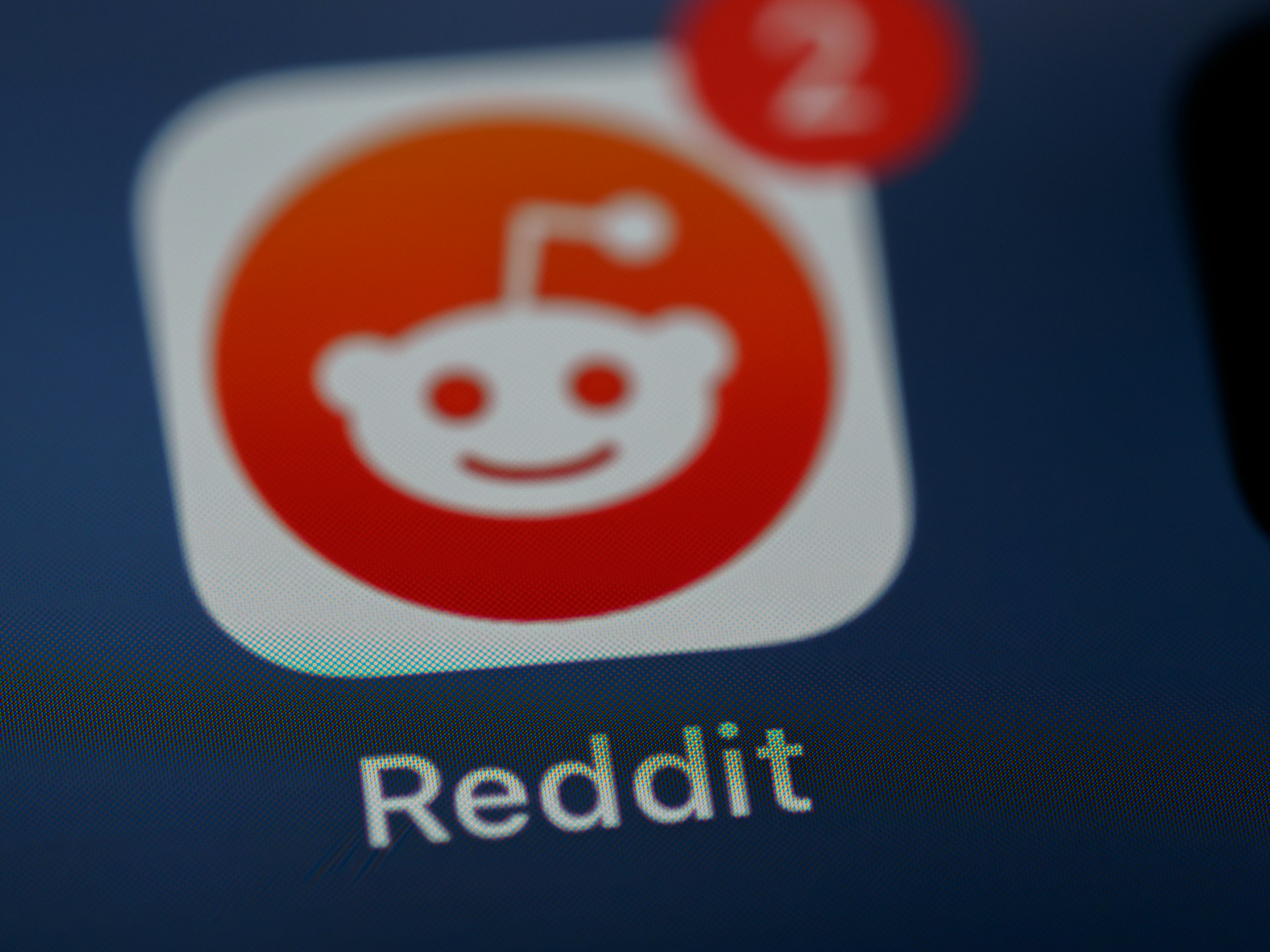
Reddit’s CEO, Steve Huffman, has declared that the platform will continue to block search engines like Microsoft’s Bing and AI models from accessing its content unless they strike a content licensing deal. This decision is part of Reddit’s broader strategy to manage how its data is used and displayed.
Why Reddit is Blocking Search Engines?
Blocking these search engines has been a significant challenge, according to Huffman. He explained to The Verge the primary reasons behind Reddit’s decision:
- Control Over Data Usage: Without content licensing agreements, Reddit lacks control over how its data is used and displayed. Huffman emphasized the importance of having a say in these matters.
- Misconception of Free Use: Companies like Microsoft, Anthropic, and Perplexity operate under the assumption that all internet content is free for their use. Huffman criticized this stance, highlighting the need for proper agreements.
- Changing Value Exchange: The traditional value exchange from search engines, where crawling content was reciprocated with traffic, is evolving. The merging of search, summarization, and AI training has muddied this exchange.
The Freeware Argument
Microsoft’s AI CEO, Mustafa Suleyman, has referred to web content as “freeware,” suggesting that since the inception of the web, it has been understood that such content is fair use for anyone to copy and reproduce. This perspective contrasts with Reddit’s stance on content licensing.
Google’s Exception
Interestingly, Reddit has not blocked Google. This is because Google pays Reddit $60 million annually as part of a content licensing deal announced in February. This agreement allows Google to access and use Reddit’s content while providing Reddit with significant revenue.
Microsoft’s Response
A Microsoft spokesperson stated that Microsoft respects the robots.txt standard, which directs how web crawlers should behave. Following Reddit’s updated robots.txt file on July 1, Bing ceased crawling Reddit’s site, adhering to the prohibition against crawling.
Why This Matters?
Reddit’s move places it in a strong position, particularly with its lucrative deal with Google. This strategy not only secures revenue but also ensures that Reddit maintains control over its content usage. Other content producers and publishers might need to consider similar strategies to protect their data while leveraging the visibility and traffic from AI search engines. Implementing generative engine optimization (GEO) strategies could be vital for maintaining relevance and maximizing the benefits of AI-driven search technologies.
Summary
Reddit Blocks Search Engines: Reddit will block search engines like Microsoft Bing unless they agree to content licensing deals.
Control Over Data: CEO Steve Huffman emphasizes the need for control over how Reddit’s data is used.
Google’s Deal: Google is not blocked due to a $60 million annual content licensing agreement with Reddit.
Microsoft’s Compliance: Microsoft respects Reddit’s robots.txt file and has stopped crawling the site as per Reddit’s directive.
Impact on Publishers: Other content producers may need to adopt similar strategies to protect their content and maintain visibility.
-

 Business3 years ago
Business3 years agoThe Most Efficient Ways To Use The Best 6 Business Keynote Presentations
-
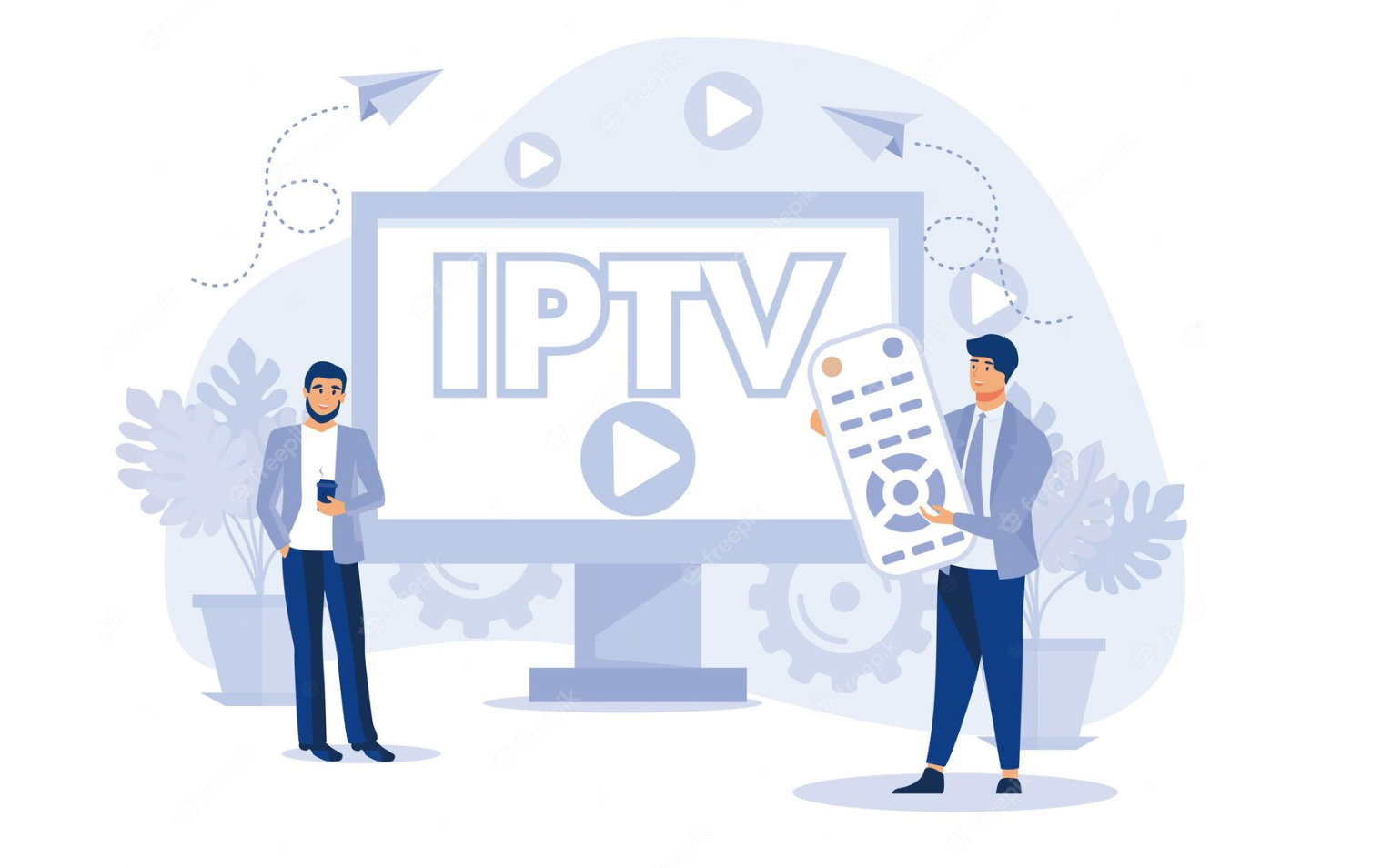
 Entertainment1 year ago
Entertainment1 year ago15 Best IPTV Service Providers in the UK 2025
-

 Apps and Software1 year ago
Apps and Software1 year agoStarbucks Partner Hours App Login Guide
-

 Tech4 years ago
Tech4 years agoIs Forecasting A Part Of Data Science?
-

 Economy4 years ago
Economy4 years agoWhat does it mean to Dream About Pennies?
-
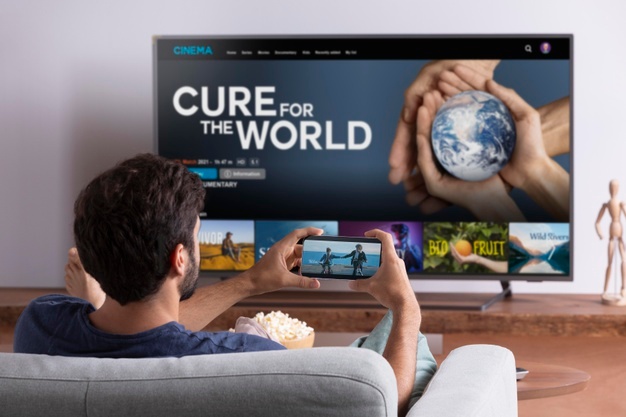
 Entertainment1 year ago
Entertainment1 year ago10 Best Free Video Player Apps For Apple TV
-

 Entertainment7 months ago
Entertainment7 months agoExploring Moviesda 2025: Tamil Cinema’s Digital Hub for Streaming, Downloads & Digital Trends
-

 Entertainment3 years ago
Entertainment3 years agoHow To Enhance Your Viewing with Video Subtitle Support
